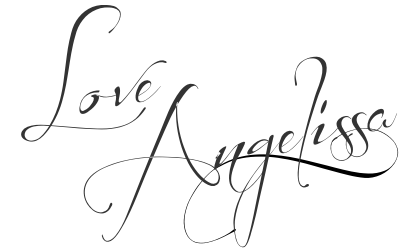 |
| Nicolas Asfouri /AFP/Getty Images |
We were given the same tasks and roles in the classroom, yet I was often told that I was "too bossy," while the boy leader was considered to exhibit "good leadership skills." I was too young and naive to understand gender roles at this time and I was simply being true to myself, not realizing that I was expected to behave differently than boys.
About one week before my family came to America, the boy leader who was also my close friend killed himself in his home after school. I don't know the exact details because adults tried hard to keep them from me- but I do know his death involved an imperfect report card, doorknob and scarf.
My friend, this smart and capable young boy, was barely ten years old and already laden with pressure, guilt and fear of parents and teachers. One bad report card was enough for him to think his life was worthless. I don't know exactly what went on in his personal life at home, but it's not difficult to deduce that he was victimized by a system that he was too young to understand.
I too, was too young to understand the implications of my friend's death at the time, but as a child growing up in 80's Korea, I always sensed that something was wrong with the place I called home.
HUNDREDS OF HIGH SCHOOL STUDENTS ARE DEAD OR MISSING
On April 16, 2014, a South Korean ferry called Sewol capsized en route to Jeju island, submerging about 300 people under its dark waters. Of the 476 people who were on the boat, only 174 were rescued including the captain and most of the employees. The rest- mostly 16 & 17-year old high school students on a school field trip, are confirmed dead or still missing.
This of course, is not the first time a ferry capsized killing its passengers. But this incident is especially disturbing because the captain and his crewmembers abandoned their duties and left behind hundreds of trusting minors to die under water.
Pictures and video clips of final moments inside the ferry show students solemnly lined up against the wall and awaiting further instructions by the crewmembers. You can tell that the ship is slowly sinking but everyone looks calm and orderly. Most of them are wearing life vests, which indicates that there could've been more survivors if the crewmembers made efforts to aid the passengers.
 |
| AP photo/ Woo Hae Cho |
Through this tragedy, I finally came to understand why my world felt so wrong as a girl living in Korea.
KOREAN CONFUCIANISM AND ITS IMPLICATIONS ON WOMEN & CHILDREN
The Korean culture is based on Confucianism that
deems children and women as inferior and less valuable. Its rigid hierarchy places males,
elders and authorities on top while teaching women and children to obey and
follow directions. In Confucianism,
a child must obey her parents, then after marriage, obey her husband.
Many Koreans to this day wear their age, power and money like badges of honor and bark orders at younger people by acting as if they are untouchable. The worst part of it all--most do as they are told.
These children, so-called "future leaders of Korea," eventually learn to follow the same system they were bred to survive in. They become politicians, executives and captains who create laws, make important decisions and maintain existing institutions. As they age, their status and power increases- and they compensate for their childhood by exercising and abusing their power.
I thought much has changed over the years, but this tragedy reveals that the foundation remains the same. Confucianism must be uprooted.
Many Koreans to this day wear their age, power and money like badges of honor and bark orders at younger people by acting as if they are untouchable. The worst part of it all--most do as they are told.
Therefore, it's no surprise that those at the lower end of the hierarchy- children, women and the disabled- are often victims of senseless murders, rapes, abuse and indirect mass killings as evident by the recent ferry incident.
The price for not being taught how to think critically, to question authority, to speak up against wrongdoings, to freely express oneself regardless of gender and social status, to protect oneself against harm, to know one's God given rights and to protect the weak is collective ignorance, which to me, is synonymous with a dead society.
My heart continues to ache for the victims and their families and yes- I will not be afraid to call them victims. They are victims of collective ignorance, indifference and selfishness; victims of a generation that cannot think and act on its own.
The numerous deaths of innocent high school students have stirred the entire country to tears, uncovering layers and layers of corruption, irresponsibility and indifference. The entire nation is grieving and filled with shame, guilt and helplessness. They know something is wrong, and they know something must change- but who and how?
I have lived outside of Korea for more than 20 years yet I still find myself surrounded by the same kind of collective ignorance. Even though I'm an American, I can’t run from my Korean roots. I am American and I am Korean. Both cultures and identities are equally important and meaningful to me.
My heart aches for all the missing children. They must've been so cold, so scared and so disappointed that no one came to save them.
I'm grieving yet I know there is little I can change. After all I'm only a mother who sits at the bottom of the hierarchy.
Only a mother.
 |
| Yonhap/AP |










No comments:
Post a Comment